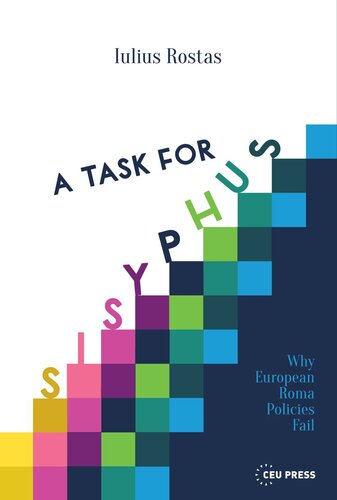

Most ebook files are in PDF format, so you can easily read them using various software such as Foxit Reader or directly on the Google Chrome browser.
Some ebook files are released by publishers in other formats such as .awz, .mobi, .epub, .fb2, etc. You may need to install specific software to read these formats on mobile/PC, such as Calibre.
Please read the tutorial at this link: https://ebookbell.com/faq
We offer FREE conversion to the popular formats you request; however, this may take some time. Therefore, right after payment, please email us, and we will try to provide the service as quickly as possible.
For some exceptional file formats or broken links (if any), please refrain from opening any disputes. Instead, email us first, and we will try to assist within a maximum of 6 hours.
EbookBell Team

5.0
110 reviewsDespite an increasing number of EU and government initiatives in their favor, the situation of Roma in Europe has only worsened. This book explores the many miscalculations, misconceptions, and blunders that have led to this failure. Looking at Hungary, the Czech Republic, and Romania, Rostas shows how policy makers in each country have mishandled already confused EU policy, from failing to define “Roma” to not having a way to evaluate their own progress. Rostas further argues that the alleged successes of these policies were actually the product of poor information and sometimes outright deception. Examining perennial topics among Roma like school segregation and political representation, the author shows how often the so-called success of Roma policies can be fallacious and simply pave the way for further problems. Rostas maintains that when the EU’s Framework for Roma program comes to an end in 2020, there must be a fundamental shift in policy for there to be any real improvement for Roma. Policy makers will have to address Roma issues not only in terms of poverty and social exclusion but also in terms of the particular nature of Romani ethnic identity. This shift requires reconceiving Roma as a “politically insular minority” and rearranging the power dynamics of local government to ensure that when the new era of Roma policy begins Roma themselves will have a voice in its formulation.